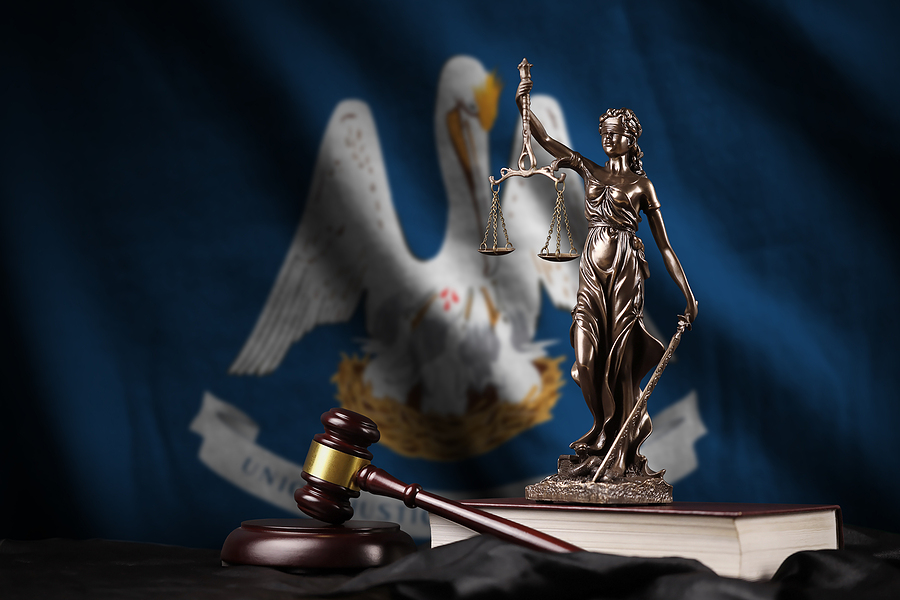A potential landmark lawsuit pits the Trump administration against Louisiana officials over World War II-era oil and gas contracts on coastal wetlands. In Chevron v. Plaquemines Parish, now under review by the U.S. Supreme Court, justices will decide which court should hear the case over whether energy companies can dredge and transport resources through Louisiana marshlands to fulfill federal contracts.
The ruling could determine whether similar cases are tried in federal or state courts.
At issue is whether energy companies today should be punished for practices that were legal when they occurred decades ago.
The dispute dates back to 2013, when more than 40 suits were filed against oil and gas companies including Chevron, ExxonMobil and Shell Oil by trial attorneys representing Plaquemines and Jefferson parishes, among others. They claimed oil and gas production eroded Louisiana wetlands and, in some cases, contaminated the water with toxic waste from World War II-related drilling.
For more than a decade, federal and state courts have engaged in a legal ping-pong match over jurisdiction.
The parishes argue Louisiana courts should hear the case because it involves state permits issued under coastal zoning laws from the 1970s. The companies counter that it belongs in federal court since the work was carried out under federal authority.
Earlier this year, a state jury ruled in favor of the parishes. Chevron was ordered to pay at least $740 million to Louisiana.
In a Sept. 11 amicus brief filed with the Supreme Court, the Trump administration said the cases should ultimately proceed in federal court. U.S. Solicitor General John Sauer argued the case belongs before a federal jury in New Orleans, noting Chevron, then operating as Texaco, was working for the federal government during World War II. He said it made no sense to question wartime activities 80 years later.
Legal scholars have also criticized the lawsuit.
“[Oil companies] are being held liable for activities that there wasn’t any legal prohibition on while they were engaged in them,” said Mike Fragoso, a former Justice Department official, at a recent discussion hosted by the Scalia Law School’s Law and Economics Center at George Mason University.
Fragoso compared the Louisiana law to Roman Emperor Nero posting laws so high they couldn’t be read, making them easier to break.
Experts also warned of the impact on Louisiana’s economy.
Melissa Landry of the Pelican Institute for Public Policy said the suits have cost the state between $44 million and $113 million per year since 2013. “State and local governments have forfeited up to $22.6 million a year in royalty revenue — money that could have gone to schools, roads and coastal restoration efforts,” she said.
Meanwhile, Louisiana’s energy sector has contracted since the lawsuits were filed.
Fragoso said oil and gas now account for 14 percent of the state’s economy, down from 33 percent in 2000. He said oil and gas jobs have dropped 41 percent, while production is down 57 percent. Neighboring Texas, by comparison, saw a 123 percent production increase.
Louisiana’s legal actions “make it a terrible place to do business,” Fragoso said.
But state Attorney General Liz Murrill, a Republican, accused Texaco — which merged with Chevron in 2001 — of lying to regulators about wastewater disposal. She said the company chose “profits over people and the law” instead of accepting accountability.
The case has drawn attention from other Republican-led states.
The attorneys general of West Virginia, Alaska, Iowa, Georgia, Missouri, Nebraska and Oklahoma filed a brief in support of Chevron. They argue that keeping the case in state court could encourage similar state and local actions against the energy industry.
Appearing on the George Mason Scalia Law School webinar, West Virginia Solicitor General Michael Williams said, “West Virginia, along with some of our partners, came into the Louisiana suit just to say, look — if these are the fights that we’re going to be having, then at least they need to be fought out in a federal forum, because the interests that are invoked in litigation like this are substantially federal and national interests, and a decision that happens in a single parish in Louisiana, especially when repeated 43 times, is going to have collateral consequences for our entire national energy system.”
In addition, oil and gas companies are battling lawsuits from dozens of Democratic-led states and municipalities accusing them of violating nuisance and consumer protection laws tied to climate change.
Those lawsuits haven’t been as successful as environmentalists had hoped. Eleven state and federal courts have dismissed such cases, including six this year in South Carolina, Pennsylvania, Maryland, New York, New Jersey and Puerto Rico.
Energy companies and their allies argue that federal law applies to these suits, citing the federal Clean Air Act, which they say preempts state and local laws and therefore should lead to dismissal.


